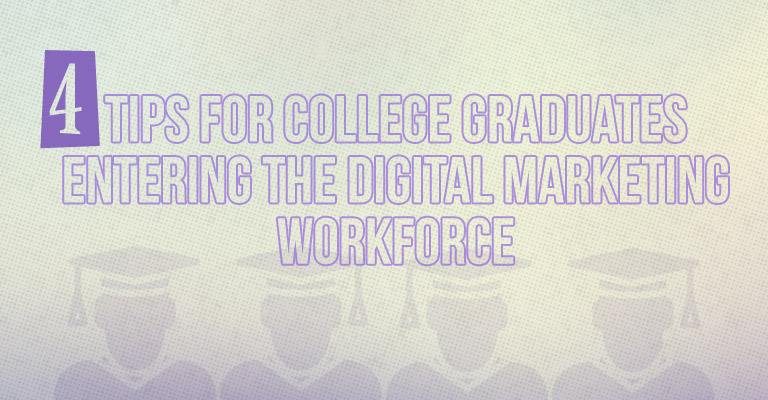When I entered the workforce, I wanted to prove that I belonged. I was a kid fresh out of college who had the drive to succeed, but needed to learn the tactical portion of the job and the social dynamics of the office place. Needless to say, I made many mistakes, often causing stress that I would lose my job! Luckily, that never happened, and those mistakes have helped shape my career for the better.
In this post, I’ll be giving my advice to those fresh faces entering the working world. The overarching theme is that you should always be learning. Just like every new stage in your life, you need to understand and adapt to the environment. You will be faced with new challenges, but by opening yourself up to these experiences and learning from them, you will progress in your career.
My first piece of advice has to do with the way you conduct yourself as you learn your profession.
Ask Relevant Questions
One of the most common sayings in the office environment is “There’s no such thing as a stupid question.” I would add to this statement by saying “but there is such a thing as inopportune questions.” Put frankly, there are questions you shouldn’t ask due to a variety of reasons that will hurt how others perceive you.
For those new to the job, there will be questions. Whether through training or day-to-day activity, your colleagues will understand that you are new and are learning. In fact, your colleagues will most likely even be happy to answer office process related questions such as when you can take your lunch break or how to fill out an expense report. The tradeoff is that you need to show you are making strides.
![]() As an example, you will ask many questions during a training session. However, you shouldn’t be asking “how to” questions during the fourth week of training about something you learned in the first week. You can ask how the topic may relate, but don’t ask for an explanation that was previously discussed. Or, you shouldn’t be asking how to schedule a meeting when you’ve been at the company for two months. Your colleagues will cut you some slack at the beginning, but you need to demonstrate growth.
As an example, you will ask many questions during a training session. However, you shouldn’t be asking “how to” questions during the fourth week of training about something you learned in the first week. You can ask how the topic may relate, but don’t ask for an explanation that was previously discussed. Or, you shouldn’t be asking how to schedule a meeting when you’ve been at the company for two months. Your colleagues will cut you some slack at the beginning, but you need to demonstrate growth.
Asking inopportune questions not only makes you appear incompetent, but it also takes time away from others. When you ask your colleagues questions, you are disrupting them from their work. You need to respect their time by thinking before you ask, which leads to my next piece of advice.
Explore
![]() Starting your career is one of the most exciting times of your life. You may be at the bottom, but the possibilities are endless. Along with constant learning, you are planting the seeds of your personal brand. It’s up to you how engaged you want to be with your profession and the rate at which you grow.
Starting your career is one of the most exciting times of your life. You may be at the bottom, but the possibilities are endless. Along with constant learning, you are planting the seeds of your personal brand. It’s up to you how engaged you want to be with your profession and the rate at which you grow.
At least in the first few weeks of starting your job, you will most likely have some down time. Training, meetings, and assignments will cover most of your time, but you’ll probably have at least an hour each day to yourself. Use this time wisely! Reading industry blogs and learning office procedures will be a given, but you can do so much more, including:
- Using LinkedIn and Twitter to find industry leaders to follow
- Participating in weekly Twitter chats. You can find a full list of topics, times and the chat hashtags here
- Commenting on blogs to ask follow-up questions of authors and providing your own spin
- Setting up alerts when new posts go live on the sites you follow. These alerts can come in the form of signing up for RSS feeds or newsletters and setting up Google Alerts
You should also review company work. The chances are that your company will have a server that houses all of the client projects. Look through the projects and take note of how deliverables are formatted and presented. There may be status documents that list all projects and deadlines. These documents are invaluable for understanding workflow and timelines.
Attend Client Calls
![]() In the digital marketing space, client relations are just as important as the tactical skills. Rarely, however, is the client side emphasized right away. This notion makes sense as new employees should first learn the day-to-day management and then learn how to communicate with clients. Though, it doesn’t mean that you can’t sit in on client calls.
In the digital marketing space, client relations are just as important as the tactical skills. Rarely, however, is the client side emphasized right away. This notion makes sense as new employees should first learn the day-to-day management and then learn how to communicate with clients. Though, it doesn’t mean that you can’t sit in on client calls.
By acting as a fly on the wall during client calls, you receive invaluable training. These calls can run the gambit of emotions, from happiness about new ideas to discouragement about poor performance. You feel the vibes of the relationship and begin to understand the context of the work being done. As an example, an employee can create a campaign in the background, but won’t fully understand the rationale of the project until speaking with the client.
The beauty of client relation skills is that they transfer from job to job. Tactically, you may do something different at your next company, but effective client communication will always be valued. That’s why it’s imperative to make time in this area. There’s no doubt that speaking with clients can be intimidating, however, these skills will help you become more well-rounded.
Let Your Colleagues Know You Can Help
![]() As a new member of the team, you should be salivating at the opportunity to help others with their work. Not only will you get hands-on experience, but you start to be seen as a dependable resource. And again, when it comes to your personal growth, taking on more tasks and building your knowledge base is paramount.
As a new member of the team, you should be salivating at the opportunity to help others with their work. Not only will you get hands-on experience, but you start to be seen as a dependable resource. And again, when it comes to your personal growth, taking on more tasks and building your knowledge base is paramount.
If at first you aren’t getting any takers don’t be discouraged. Some people are too busy or aren’t comfortable delegating their work. Be persistent with your inquiries, but not annoying. An email once a week to the team with the tasks you are comfortable undertaking is a good step.
Final Thoughts
These tips are meant to help you start your career off on the right foot. With hundreds of thousands of college graduates entering the workforce each year, how will you stand out?






